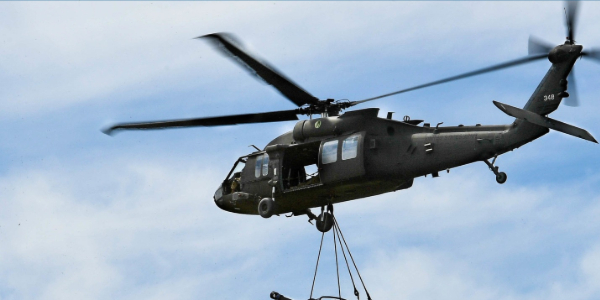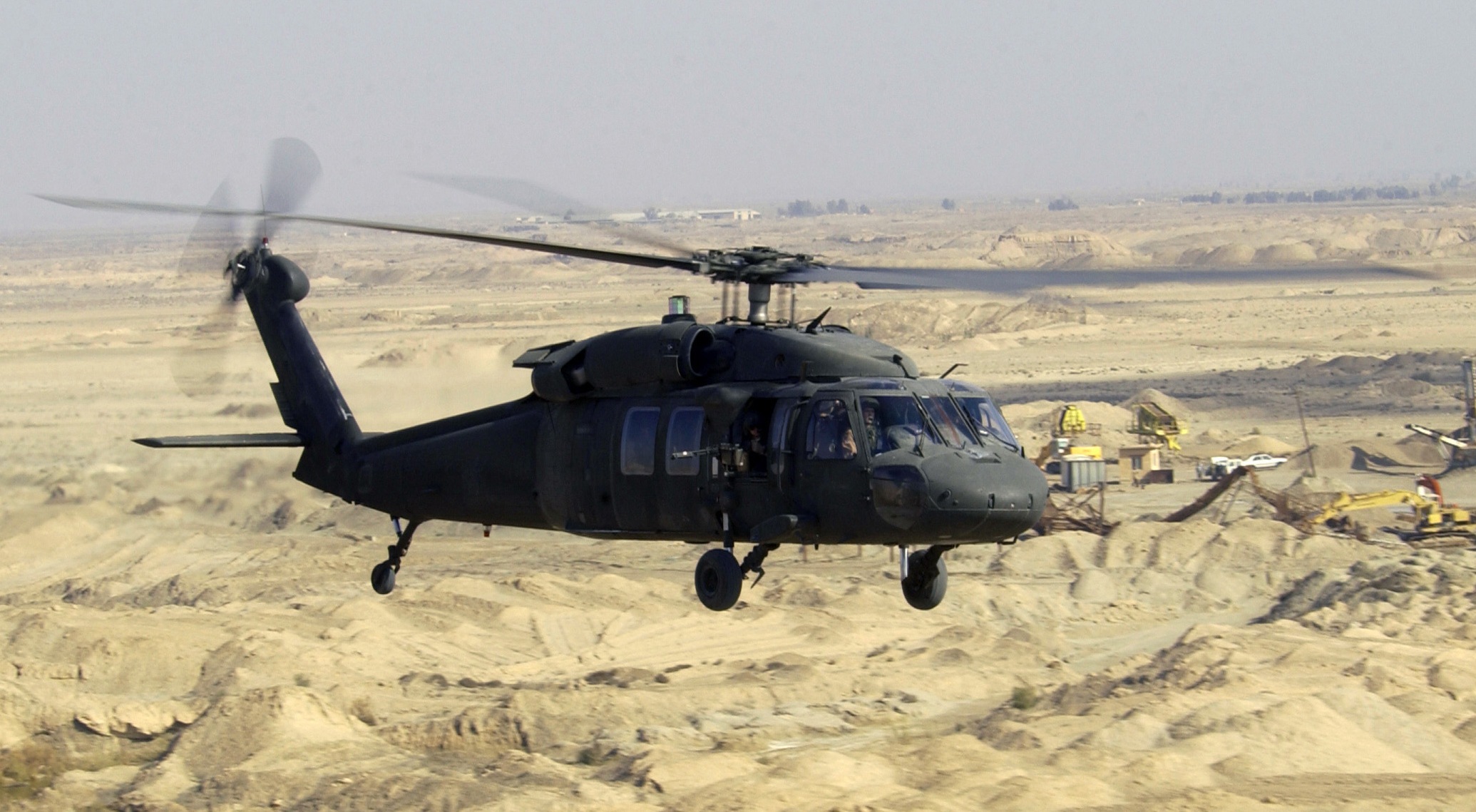Maintenance and Upkeep for UH 60 Helicopters
The Influence of Lasting Practices on the Future of Aircraft Procedures and Emissions Decrease
As the air travel sector faces enhancing examination over its environmental effect, the adoption of sustainable methods becomes a critical pathway toward future aircraft operations and exhausts reduction. Advancements in lasting aeronautics gas and advancements in hybrid propulsion innovations stand at the leading edge of this makeover, appealing significant reductions in greenhouse gas emissions. Nonetheless, the successful assimilation of these campaigns depends upon a range of elements, consisting of governing structures and sector cooperation. The concern stays: how will these advancing methods reshape the dynamics of flight and add to an extra lasting future?

Overview of Sustainable Practices
Lasting practices in airplane operations encompass an array of approaches targeted at minimizing environmental effect while preserving functional efficiency. These methods are crucial in the aeronautics market's dedication to lessening its carbon footprint and adhering to global ecological standards. Trick efforts include maximizing trip paths to lower gas usage, boosting maintenance procedures to make sure airplane operate at peak performance, and implementing sophisticated technologies such as winglets and light-weight products that enhance aerodynamics.

Involving and training team on sustainability methods likewise play an essential function, fostering a culture of ecological responsibility within companies. On the whole, the integration of these sustainable techniques not just helps in reducing emissions but likewise improves the long-lasting feasibility of the aviation field, guaranteeing it satisfies the needs of both customers and regulatory bodies while adding to global sustainability goals.
Innovative Gas Alternatives
Numerous ingenious gas options are emerging as pivotal solutions to reduce the aeronautics sector's dependence on traditional fossil fuels. Among these options, Lasting Air travel Gas (SAFs) have actually obtained substantial attention due to their possible to decrease lifecycle greenhouse gas emissions by as much as 80% contrasted to conventional jet gas. SAFs are derived from various feedstocks, including waste oils, farming residues, and also algae, making them a functional option for the industry.
An additional encouraging option is hydrogen gas, which, when made use of in gas cells, produces just water vapor as a result. Furthermore, electrical propulsion systems are being discovered, leveraging battery modern technology to power airplane.
Lastly, biofuels derived from biomass are being investigated, providing a sustainable alternative that can be mixed with standard fuels. Jointly, these ingenious fuel choices stand for a critical action towards accomplishing a sustainable aeronautics environment, aligning with global emissions reduction targets and boosting the sector's environmental stewardship.
Technical Advancements in Air Travel

Just how can technical advancements reshape the future of aviation? The integration of cutting-edge technologies is critical in changing aircraft procedures, boosting performance, and minimizing exhausts. Innovations such as electrical and hybrid propulsion systems are at the forefront, promising significant reductions in gas intake and greenhouse gas exhausts. These systems utilize innovations in battery technology and energy management, enabling airplane to run with a lower ecological impact.
Furthermore, the execution of advanced products, such as light-weight compounds, adds to enhanced the rules of aerodynamics and gas performance. Using expert system and equipment understanding in trip procedures maximizes course preparation and reduces gas melt by making it possible for real-time changes based upon climate and web traffic conditions. Additionally, the advancement of autonomous and remotely piloted aircraft systems stands to revolutionize cargo and guest transportation, possibly boosting performance while lessening human mistake.
Moreover, lasting aviation innovations, including advanced air traffic monitoring systems, can decrease and enhance procedures blockage, causing reduced exhausts throughout trip. These advancements jointly stand for a standard change in air travel, guaranteeing a future where sustainability and functional efficiency are linked, thus sustaining the sector's dedication to minimizing its ecological effect.

Regulatory Structure and Compliance
Taking into account the growing emphasis on ecological stewardship within the aviation field, the regulative framework governing airplane procedures is developing to advertise sustainable methods. Regulative bodies, such as the International Civil Aviation Organization (ICAO) and various national aeronautics authorities, are introducing rigorous guidelines intended at lowering exhausts and improving operational effectiveness.
These regulations usually consist of the fostering of Sustainable Aviation Fuel (SAF), which has been identified as a vital component in attaining reduced carbon impacts. Compliance with these laws needs airlines to implement functional methods and innovative modern technologies, such as maximized trip courses and improved air web traffic administration, to decrease gas usage.
In addition, the enforcement of emissions trading systems and carbon offsetting efforts is ending up being increasingly common, compelling airline companies to keep track of and report their discharges precisely. Non-compliance can lead to significant charges, thus pressing operators to prioritize sustainability in their business versions.
Ultimately, the advancing regulatory landscape not just drives technology and investment in green technologies but likewise cultivates a culture of liability within the aeronautics sector. As these structures remain to develop, the concentrate on lasting methods will be essential to achieving the market's lasting here environmental goals.
Future Fads in Aircraft Workflow
As the aviation industry adapts to a significantly rigid regulatory setting, future patterns in airplane operations are readied to concentrate on innovative solutions that further boost sustainability and performance - uh 60. Secret advancements will likely consist of the fostering of sophisticated air traffic management systems, which make use of real-time data and artificial knowledge to optimize flight courses, minimizing gas usage and emissions
One more considerable trend is the raised integration of sustainable aeronautics fuels (SAFs) These choices to conventional jet fuel, stemmed from sustainable resources, can considerably lower lifecycle greenhouse gas exhausts. The industry's dedication to SAFs will likely accelerate as airline companies team up with gas manufacturers to ensure schedule and cost-effectiveness.
Additionally, the press towards electrification and crossbreed propulsion systems is getting energy. Arising airplane designs will certainly include these modern technologies, supplying quieter and a lot more effective operations, particularly for short-haul flights.
Conclusion
The adoption of sustainable aviation fuels, combined with improvements in electrical and hybrid propulsion systems, is crucial for decreasing lifecycle greenhouse gas emissions. Maximizing trip courses and welcoming ingenious modern technologies add to a quieter and extra environmentally friendly aviation sector.
Developments in lasting air travel gas and advancements in crossbreed propulsion innovations stand at the center of this improvement, appealing significant reductions in this hyperlink greenhouse gas discharges.Various ingenious gas alternatives are emerging as pivotal services to lower the aeronautics sector's reliance on conventional fossil fuels - uh 60. content Among these alternatives, Sustainable Air travel Fuels (SAFs) have acquired considerable interest due to their prospective to lower lifecycle greenhouse gas discharges by up to 80% contrasted to conventional jet gas.One more substantial fad is the increased assimilation of sustainable air travel fuels (SAFs) The adoption of lasting aeronautics gas, coupled with innovations in hybrid and electrical propulsion systems, is vital for decreasing lifecycle greenhouse gas emissions